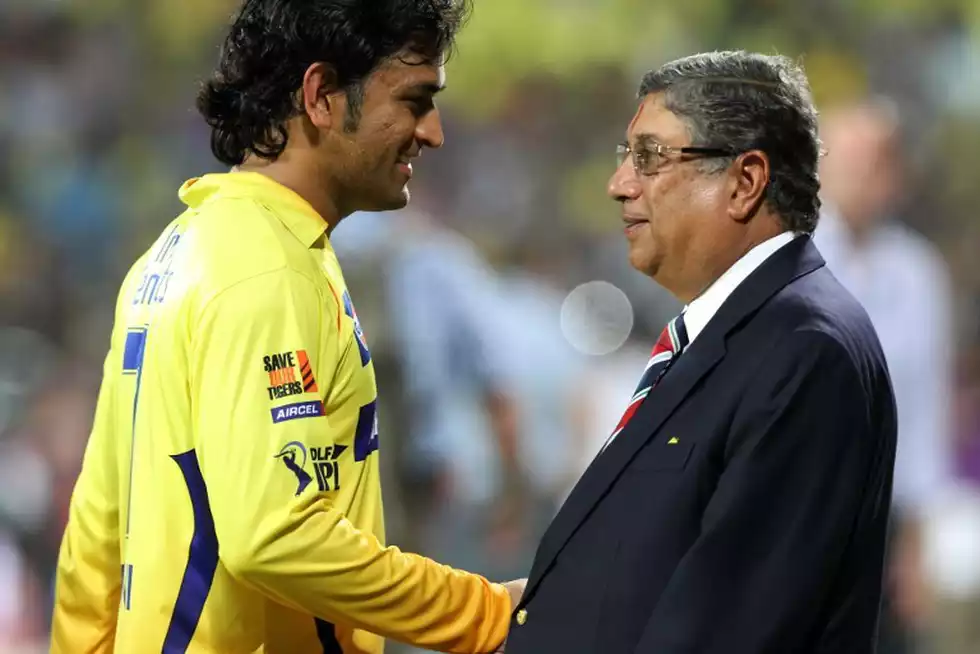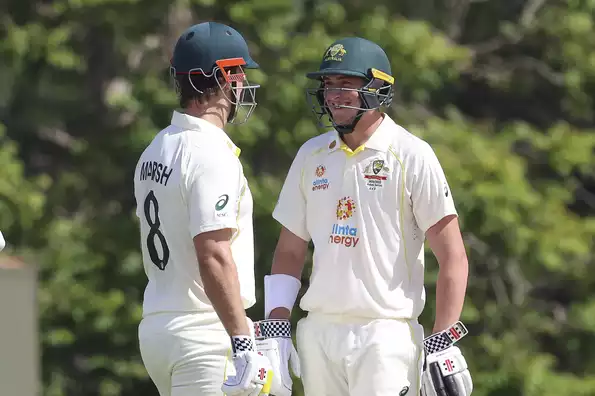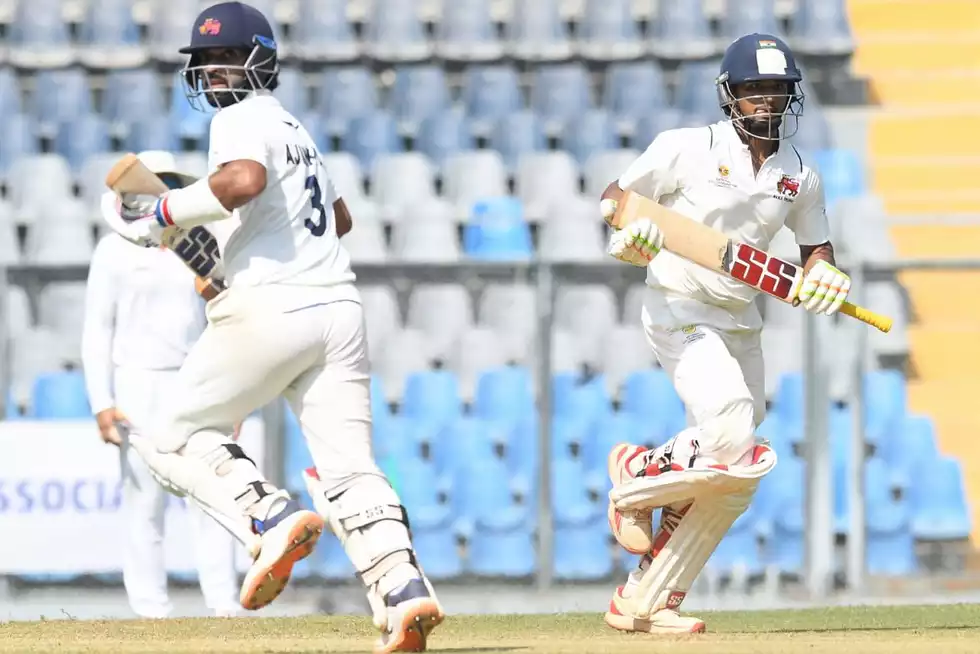We present Dhoni to you in this special through the perspectives of those who had varied experiences with him throughout his career.
N Srinivasan, who collaborated with Dhoni at CSK and BCCI
The first encounter
Before the Indian squad departed for the 2007 World Cup, I had a quick meeting with him. Next, when he visited CSK, I had a direct encounter with him. I was in the BCCI at the time. Naturally, I served as secretary and treasurer once he was appointed captain, so we attended many events together. What struck me back then still strikes me now: He is an extremely composed individual; it is hard to find someone with such composure. He has always had very rational thought processes.
The T20 World Cup was his to win. He was the captain that won. He was clearly the rising star, therefore I wanted him [in the Chennai Super Kings] at any costs. At the time, the late VB Chandrasekar played a significant role in the team. If my memory serves me well, he was actually holding the paddle at the first auction. Nearly a year has passed since VB’s death. I had informed him that we must acquire MS Dhoni and Muralitharan at any costs. That day was actually my father’s yearly funeral. It was something I had to plan in Mumbai. By the time I was done, he had both Muralitharan and Dhoni.
The partnership
Our working relationship was based on the principle of “Don’t interfere”. As secretary, it was my responsibility to run meetings. I’m gone as soon as the team is decided upon. We didn’t scrutinise him or cast doubt on him. Thus, as the captain of India, he enjoyed total freedom. He was also quite explicit about who he wanted and didn’t want, and he always provided an explanation. He is quite clear about what he wants, even in CSK. One cannot contaminate his intellect.
In all the years I’ve known him, I haven’t heard him say or act unfairly towards anyone. He could pick and drop players, of course, but his reasoning would be grounded on cricket. He was never biassed. All of this was quite uncommon for someone in his position.
I could list a plethora of examples, but that would be unfair to Dhoni or the player, who is still competing in the IPL. However, Dhoni would always explain his preference for X over Y. “No, sir, he is not a good team man,” he would respond when we brought up one foreign player that we had considered. That’s all there is to him. Even if he was a fantastic player, he won’t benefit the squad. Dhoni will surpass the abilities. He observes his team and always wants them to be harmonious. It holds great significance for him.
Regarding his participation in group decisions
As a cricket corporation, we have 12-13-14 teams in this Chennai league. I want to be absolutely clear: while you can own CSK, the player is not your property. We manage a tonne of teams. The player owns the team, and the team owns him. We at India Cements don’t badger the group. We don’t bother him. Everyone is doing their hardest, and nobody loses. For athletes, success and failure are illusions.
One thing has kept our relationship strong: we never doubt each other’s motives. We acknowledge that there are players that are better than you; you may experience a rough patch.
I think he will play for CSK indefinitely. He is a man unto himself. He is still competing for CSK. Thus, we are overjoyed.
Keeping up the Dhoni legacy off the pitch
Whoa, that World Cup winning six. That was right in front of us. He’s won so many games, and I have so many treasured memories of his last-minute finishes. As an Indian, though, nothing can match the victory we recently experienced in India, with him hitting the game-winning runs.
Mukherjee Raju (Among the first to notice Dhoni’s scouting talent)
the initial impression
I was a member of the talent scout system that BCCI had instituted. East Zone one-day matches were being played in Jamshedpur at Telco Stadium and Keenan Stadium. I was dispatched as a talent scout on the first day, along with another scout named PC Poddar, a former cricket player from Bengal. “Raju today I found a man hitting the ball very hard,” Poddar informed me during our supper at the end of the day. I said, “Okay, hard-hitting batsman, that’s good” . “No,” he replied. Very challenging! Over the years, nobody has hit the ball with such force.”
PC Poddar played First-Class cricket for twenty years, so I was unaware of this, but if he’s saying he’s never seen someone hit that hard, then something must be going on. I decided to check him out the following day.
As I approached Keenan Stadium, I noticed Kanu Chakraborty, the head coach of the Bihar team, was there and waiting. As we were chit-chatting, I mentioned to him that I had heard of a player that hits really hard.
“Sir, everyone on the Bihar team hits the ball hard,” he said. All we have are batsmen who can strike hard. We reject the idea of “soft hits.” At that moment, a boy on a motorbike pulled up. I glanced at him… Long hair, protruding muscles, a shirt that fits tightly. To tell the truth, it looked like a ruffian. Unbelievably, though, in thirty seconds, my viewpoint shifted.
Two or three dogs ran over to him as soon as he parked his bike. He produced some biscuits from his pocket, and it was evident to me that they had been brought out specifically for them. I had to reassess my assessment of the youngster in less than thirty seconds. After feeding the dogs, he approached us, stroked Kanu’s knee in accordance with custom, introduced us, gave us a namaskar, and departed. Kanu described himself to me as a calm boy who was a true gentleman.
Views of the participant
He walked out to bat, and I recall that at a short extra, he completely bisected Devang Gandhi with a ball. It struck the block wall and bounced back. Though he only scored about thirty, I thought, “What a player.” I submitted a report. I had never seen such power in Indian cricket, but I wasn’t advocating that he be picked for the team or anything. It was enlightening. While some achieved scores of 100s and 200s, the average score was an astounding 30.
“On his day, this man can slaughter any opposition,” I wrote in my assessment. However, he is an ordinary wicketkeeper.” It was difficult since, in those days, India’s wicketkeeping was done by anybody with gloves. It was after seven days that Dilip Vengsarkar called. Dilip trusted my opinion when it came to young cricket players and had a lot of faith in me.
Being summoned
A camp was being held at the NCA by India A approximately a month later. Dhoni made a successful landing. Sridharan Sriram was a kind gentleman and a big help. Dhoni was placed in his room and slept on the floor by him. In Bangalore, Dhoni scored four balls or so and left his stamp on the pitch. When Dilip called, he asked for his name and number. After speaking with senior selector Kiran More, it was determined that he would start as the second player for the India A squad in East Africa. As it occurred, Karthik had to be brought in after Parthiv hurt himself while playing for India. Dhoni thus emerged as the top pick.
The previous gathering
When I was a match referee at the Indian Premier League, I had my second encounter with Dhoni following his World Cup victory. As we approached for the toss in one IPL match, I recall going up to him. I told him, “Son, with all this band and sound, I can’t hear anything. I’m getting on in years and starting to get deaf.” “Sir, don’t worry, I’ll call tails,” he said. And at the toss, he cried, “TAILS.” He is a really endearing individual. I firmly believe that he is at the very top of the human ladder.
Simon Taufel (who officiated international and IPL matches alongside Dhoni)
First impressions as a participant
His longevity is a testament to it. But two things in particular caught my attention: 1. His amazing physical prowess and quickness in transitioning between wickets. In my career, he has always been among the fastest runners between the wickets. 2. His aptitude for reading the game, staying ahead of the action, and his cricket brain. Why would I say that? I believe he has captained and managed spinners more skillfully than most. I consider it an amazing trait that Harbhajan, Ashwin, and Jadeja possess when it comes to providing them with field settings, coaching, and tactics to bowl over or around the wicket and eliminate batters.
His ability to remain composed under duress was exceptional, both on and off the pitch. I witnessed him overseeing the media and fans during the World Cup final and previous matches. He gave off the impression of not being readily upset or angry.
The discussions
I think MS appreciated that you had to answer a call, regardless of whether it was an overrate issue or a disagreement over how to interpret the playing conditions. If you can be straightforward and honest. I believe that if you were a competent umpire, MS Dhoni would have reciprocated the respect. He was by far a simpler captain to deal with. Antagonism or hostility did not exist. You received exactly what you saw. It’s possible that other umpires didn’t have such a relationship, but it is their decision. My interactions with MS turned out to be fine. I could concentrate on my game.
I recall that he bowled five overs in thirty minutes at Edgbaston during the 2011 India-England series. Even though he bowled just five overs in thirty minutes, India was still far ahead of their team at the time. I remember Steve Davis and I calling MS across. “I’m in front of the overrate, what’s the problem?” he clearly pointed out.
The issue was that you had to bowl faster because the game could not be slowed down to accommodate your team’s strategies or goals. It is still necessary to keep a respectable overrate even when you are leading. We informed him that his efforts were insufficient. In response, he carried out our instructions.
Ian Gould and I officiated a Test match in South Africa in 2011. In a previous encounter, Sreesanth bowled several overs, and India was having trouble with their over-rate. It was sage to discuss with Dhoni how we don’t find ourselves in that dressing room prior to the Durban Test. We tried to have a really serious discussion about how we might help the umpire at Kingsmead avoid getting into a situation where the referee suspends him. He has some amazing black leather seats in his room. He was not paying close attention to that conversation. He continued to fiddle with the black leather seats, wondering how he would manage to put one in his homecoming suitcase.
He concluded with a jest, stating, “I can concentrate on playing with the chair; I’m not worried about the overrate because Sree isn’t playing in the game.” [Every game was played by Sreesanth]
The expert reader of games
Here’s another instance of how well MS has thought through and read concepts. My conclusion was that he would be one of the more successful decisions to have them overturned when it came to contesting DRS judgements and whether to do so. I believe this further demonstrates how well he understands the game.
Considering his depth of experience, intelligence, and understanding of the game, I hope he is not lost to cricket. I hope he is contributing to the knowledge transfer to the following generation. I hope he finds ways to remain a servant to the game and that the immense asset isn’t lost to the international competition.



